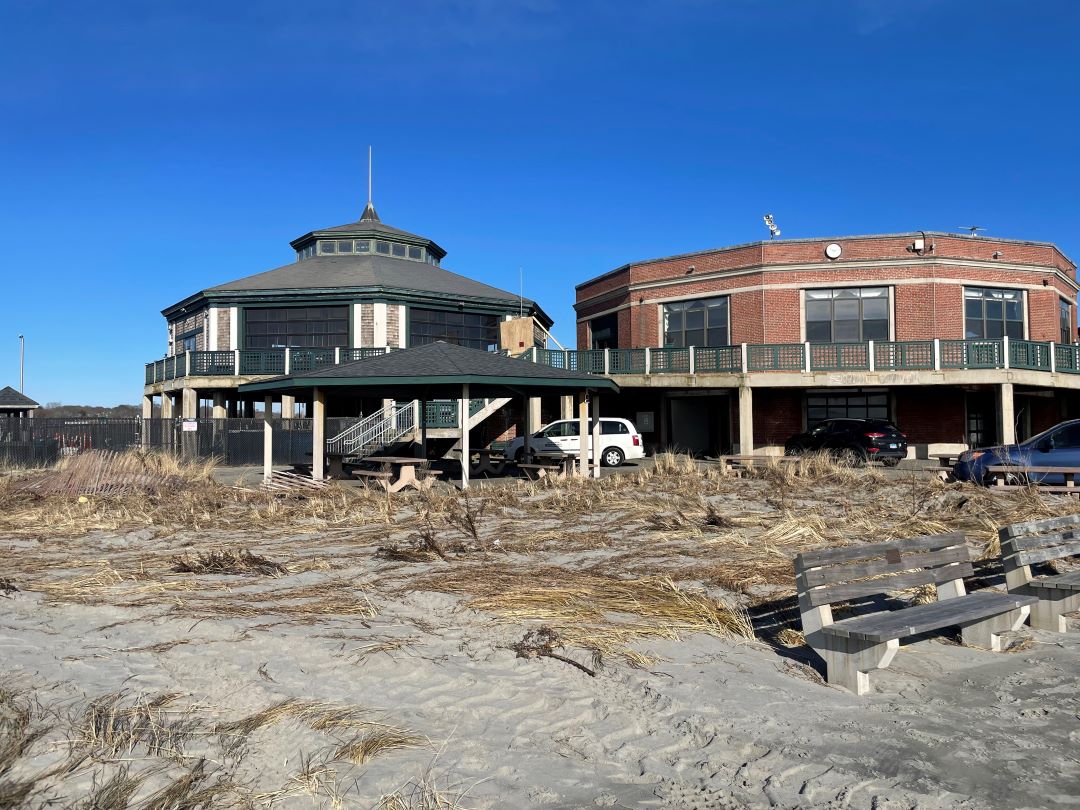Connecticut Pullback from Transportation Emissions Initiative Fails to Deter Rhode Island’s Supporters
June 10, 2021
A regional program to slow harmful transportation pollution suffered a blow recently as Connecticut’s governor dropped the measure from budget consideration, but Rhode Island advocates remain committed to the effort to reduce vehicle emissions 26 percent by 2032.
Connecticut Democratic Gov. Ned Lamont announced June 4 he wouldn’t include the Transportation & Climate Initiative (TCI) in his budget proposal sent to the Legislature.
Cary Lynch, Connecticut climate and energy policy manager for The Nature Conservancy, said the ongoing legislative session includes debates on the budget, tax reform and a recreational marijuana bill, leaving no time for further discussion of the transportation emissions initiative.
“TCI was the unfortunate victim,” said Lynch, who noted the Connecticut General Assembly is headed for a special session during which a TCI bill in the Senate (SB884) could be discussed.
Former Rhode Island Gov. Gina Raimondo signed a memorandum of understanding in December to join the cap-and-invest program with Connecticut, Massachusetts and the District of Columbia. The initiative would use carbon pricing to promote a decrease in the use of gasoline and diesel. TCI is expected to generate more than $3 billion over 10 years for participating governments, with Rhode Island’s annual revenue projected at about $20 million. The proceeds would be used to expand electric-vehicle infrastructure and other initiatives that make up the “green transportation economy.”
Levels of commitment vary, although several jurisdictions beyond Connecticut, Rhode Island, Massachusetts and D.C. have expressed backing for the initiative at some point. They include Delaware, Maryland, Maine, New Jersey, New York, North Carolina, Pennsylvania, Virginia and Vermont.
TCI has a regional scope, but the individual governments must write, pass and fund their own programs. While the Connecticut pullback is a blow to its momentum, the initiative retains backing from legislators in New England’s two southernmost states.
“I support TCI,” Connecticut Speaker of the House Rep. Matthew Ritter, D-Hartford, said June 8. “I think that regional cooperation makes a lot of sense, state to state, and I think the issue will continue to be brought to the forefront.”
But concerns about the initiative remain within Connecticut’s Democratic caucus, Ritter said.
“I don’t think enough information went into what the funding would do. I think people felt like the funding was all going to some random account in general fund. Actually, it’s paying for projects that would help deal with communities that have been impacted by pollution,” he said. “I think we’ll be able to convince people. Maybe it’s today, maybe it’s two weeks, maybe it’s two months, maybe it’s next year. But I fully support it and I will put my weight behind it the best that I can.”
Rhode Island’s Transportation Emissions and Mobile (TEAM) Community Act, filed in the Senate as S0872 and the House as H6310, is the first legislative attempt to implement the goals of TCI. The bill would establish statutory framework within the state including regulatory authorities, legal compliance obligations and carbon allowances for auction.
Rep. Terri Cortvriend, D-Portsmouth, said she anticipates the bill will receive a hearing later this year when the General Assembly is expected to reconvene to deal with federal funding measures.
“Right now I’m just watching and hoping for a hearing in the fall,” said Cortvriend, the House sponsor of the TEAM Act. Sen. Alana DiMario, D-Narragansett, sponsored the bill in the Senate.
DiMario said capping and gradually decreasing transportation carbon emissions remains essential to the state’s future and using a fee on petroleum wholesalers to build a dedicated revenue stream would help increase vehicle electrification and public transportation use.
The developments in Rhode Island’s western neighbor don’t change Cortvriend’s plans to advocate for passage of the TEAM Act and TCI, but she “will be watching Connecticut closely.”
“It is rare that you have a number of states working together, which seems necessary for any effective policy addressing transportation,” Cortvriend said. “It is critical that Rhode Island remain involved. The transportation industry is moving away from fossil fuels and we want to be able to take full advantage of the new economic opportunities that this transformation will generate.”
Mal Skowron, a program associate with environmental advocacy organization Green Energy Consumers Alliance, said Rhode Island should continue pursuing TCI “at full speed.”
“It’s great to coordinate with our neighbors because transportation is a regional issue, but Rhode Island will still receive all the benefits of the TCI program whether Connecticut acts alongside us or one step behind us,” she said.
Skowron cited a new study by university researchers concluding tailpipe pollution led to premature deaths — 367 in Connecticut and 119 in Rhode Island — in 2016. Connecticut and other states in the region are likely to join as they recognize the value of using TCI to reduce hazardous transportation emissions, she said.
“The benefits of participating are painfully clear,” Skowron said. “Rhode Island is in perfect position to be a leader and address the problem of air pollution and the climate crisis head-on by continuing in the TCI process.”
The TEAM Act’s target date of 2023 provides legislators and activists time to continue pushing for the bill and lay the groundwork for TCI implementation, according to Skowron.
“After the passage of Act on Climate, there’s greater understanding that Rhode Island needs tools to meet its 2030 emissions reduction goal, and TCI is a very important tool to achieve this end,” she said.




Connecticut has some mercy on its citizens. The RI and MA overlords are the only zealots left. Stop the lunacy.